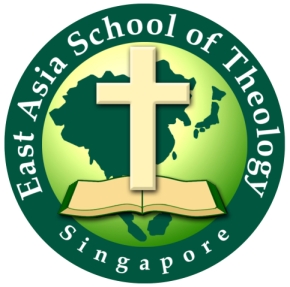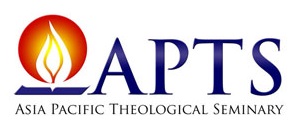B. H. Carroll Theological Institute is an accredited Christian Baptist institution in Irving, Texas with multiple sources of funding and a self-perpetuating board of governors. It is named after Benajah Harvey Carroll and teaches Baptist principles and practices. It operates in cooperation primarily with Baptist churches, and also cooperates with other Great Commission Christians. The institution offers classes in both conventional classroom settings and by innovative means. It trains students in "“teaching churches” located in multiple Texas cities, as well as through interactive lessons taught over the Internet", with 20 such "teaching churches" in operation throughout Texas as of November 2006. The school plans to focus on the use of distance education to make it easier for students to obtain theological education. As of 2006, the school's second year of operation, B. H. Carroll Theological Institute had 300 students taking courses and an additional 300 students auditing courses. Bruce Corley was Carroll's first president; Gene Wilkes is Carroll's second president.
American Accrediting Association of Theological Institutions (AAATI) is a Christian nonprofit organization based in Rocky Mount, North Carolina. It was founded by Cecil Johnson, president of Christian Bible College, a distance education Bible college based in Rocky Mount North Carolina.

Asia-Pacific Nazarene Theological Seminary (APNTS) is a graduate-level theological institution located near Metro Manila in the Philippines. APNTS is a seminary in the Wesleyan theological tradition and affiliated with the Church of the Nazarene through its Division of World Mission. Its mission is to prepare "men and women for Christ-like leadership and excellence in ministries." Its institutional vision is: "Bridging cultures for Christ, APNTS equips each new generation of leaders to disseminate the gospel of Jesus Christ throughout Asia, the Pacific, and the world.
The Board of Theological Education of the Senate of Serampore College (BTESSC) is the arm of theological education under the Senate of Serampore College (University). BTESSC was formed in 1975.

Malaysia Theological Seminary is an interdenominational Protestant seminary in the city of Seremban, Negeri Sembilan, Malaysia. Established in 1979, STM is accredited by the Association for Theological Education in South East Asia (ATESEA) and a participating school of the South East Asia Graduate School of Theology (SEAGST) from which the Master of Theology degree is awarded.
Sabah Theological Seminary (STS) is an interdenominational Protestant seminary located in the town of Kota Kinabalu, Sabah, East Malaysia.
The South East Asia Graduate School of Theology (SEAGST) is a Protestant graduate school of theology, established in 1966 and operated by the Association for Theological Education in South East Asia (ATESEA) in cooperation with and on behalf of member schools of ATESEA. The headquarters is located in the offices of ATESEA in Manila, Philippines.
The Adventist International Institute of Advanced Studies (AIIAS), is a Seventh-day Adventist graduate institution located in the Philippines, offering graduate degrees in Business, Education, Public health, and Theology. It is a part of the Seventh-day Adventist education system, the world's second largest Christian school system. AIIAS is a truly international institution, with faculty representing 18 countries. The institution has thus far served students from 123 countries around the world.

Asia Theological Association (ATA) is a Christian organisation of seminaries in Asia. It is a member of the International Council for Evangelical Theological Education. The headquarters is in Quezon City, Philippines.

East Asia School of Theology is a theological school established in Singapore by Campus Crusade for Christ International as a legal division of Cru Asia Ltd. in 1992, with the stated purpose of developing and equipping Christian leaders for evangelical duties in East Asia.
Chin Christian University (CCU) is a Christian university in Hakha, Chin State, Burma. CCU is one of the departments of Chin Association of Christian Communication (CACC). After 25 years (1990-2015), God blessed Chin Christian College's long vision: "To Transform the College into a University" and the name of the institution was changed into Chin Christian University by the 9th Triennial Meeting of Chin Association of Christian Communication, held at Hakha Khuahlun Baptist Church on April 4, 2015.
Chin Christian Institute of Theology, also known as CCIT, is situated in Falam, Chin State, Myanmar. It is a school run by Chin Baptist Convention, which belongs to Myanmar Baptist Convention.
The Silliman University Divinity School, more commonly referred to as the Divinity School, is one of the constituent academic units of Silliman University, a private university in Dumaguete, Philippines. Founded in 1921, the school is affiliated with the United Church of Christ in the Philippines and is accredited with the Association of Theological Education in South East Asia (ATESEA).

Asian Seminary of Christian Ministries is regional theological education and ministry training institution of the Church of God World Missions (COGWM) and a religious higher education institution recognized by the Philippine government.

The Central Philippine University College of Theology, also referred to as the CPU COT, CPU College of Theology or CPU Theology, is the theological seminary and one of the academic units of Central Philippine University, a private university in Iloilo City, Philippines. Founded in 1905 as the Bible School for the training of men Christian workers and missionaries through a grant of the American industrialist and Northern Baptist, John D. Rockefeller, it is the oldest college and academic unit of Central Philippine University and the first and oldest Baptist theological seminary in the Philippines.

Asia Pacific Theological Seminary (APTS) is a theological seminary in Baguio, the Philippines, operated by the Assemblies of God.
The Asia Graduate School of Theology (AGST) is a consortium of evangelical theological seminaries. It was established by Asia Theological Association in 1984, and consists of three bodies: AGST Japan, AGST Philippines, and AGST Alliance.
Myanmar Theological College is a Christian seminary in Mandalay, Myanmar.







